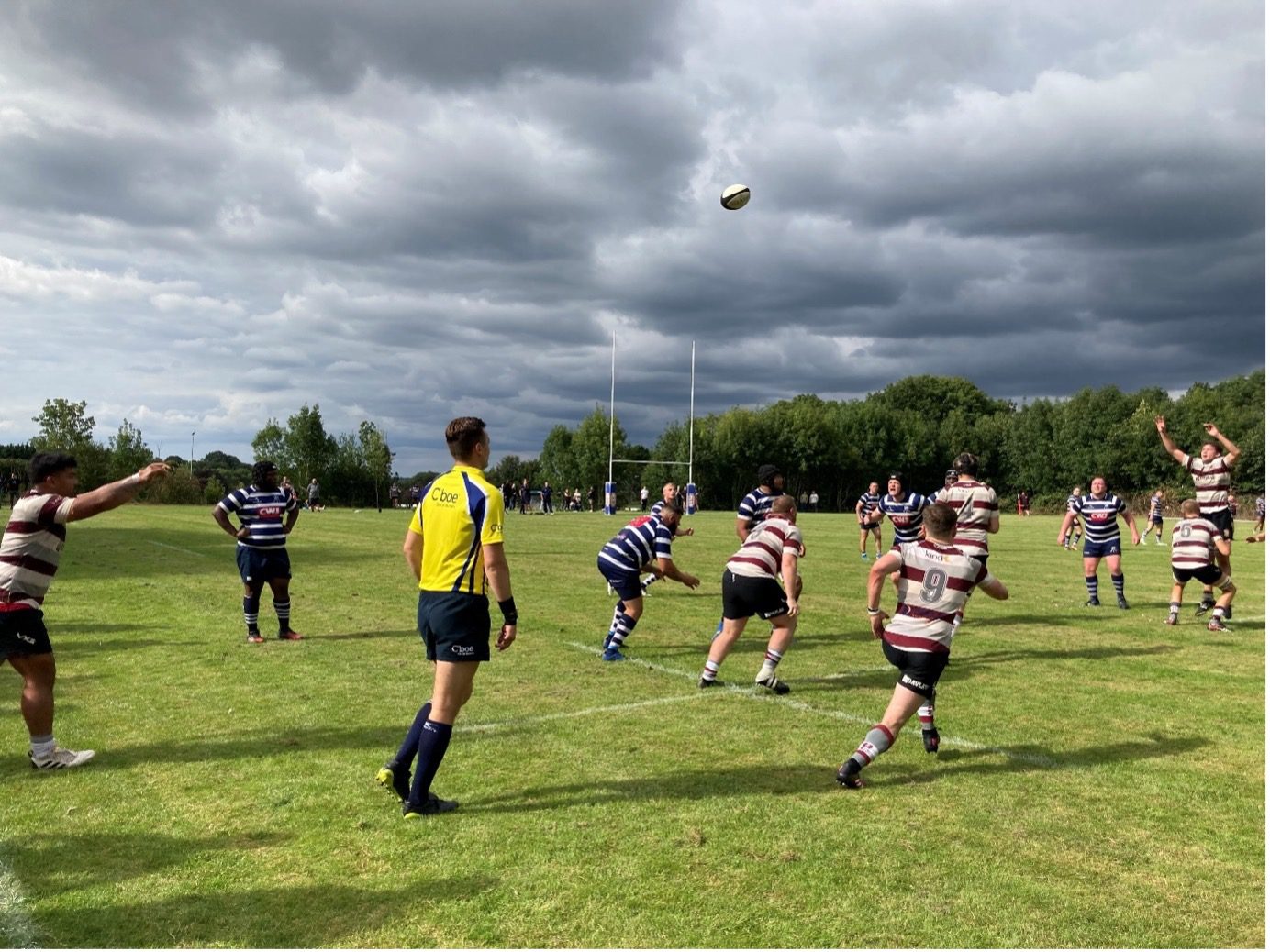I have been thinking about participation. Specifically, about the extent to which organisations and teams create the conditions for everyone in them to show up, step up, and fully participate. Or how often are members of our teams actually just spectating?
I thought I would draw on a recent experience of my own to explore a little around what participation can look and feel like and how this may impact on performance.
Below is Westcombe Park 1st XV rugby squad located in Orpington in South-East London playing at the start of last season – 21/22. At the time, they were trailing rather dismally in their league, and clearly struggling to make much headway with their performance. However, early in December I went to watch them again. Not only did they beat Medway Town with a triumphant 45-10 score but this represented their 13th win of the season (22/23) securing an impressive record of straight wins since its start – putting them right at the top of the league and positioning them as a strong candidate for promotion.
What a major achievement this is, given where they were this time last year! But this begs the question – what has changed in this Club to bring about such a significant shift in performance from just one season to the next and in less than a year?

There is little doubt that to achieve this incredible run of wins, everyone in the squad, in the coaching team and wider Club, has had to step in and fully participate. No single person could have achieved this on their own. So, what does participation look and feel like and how do we recognise it? How do we know who is participating and who is just spectating? I considered my own role in relation to this particular team. Had I just been spectating or was my involvement and contribution more than that?
In any one team, in this case, a rugby club, participation is going to look and feel differently for every person involved but this does not reduce in any way the importance of each person’s participation, however large or small that might seem to an onlooker. Everyone has their part to play and as long as they are playing it to the best of their ability, then surely performance will follow. On the surface of it, one could argue that I had just turned up to watch a rugby match and was, therefore, just another spectator. I would argue differently.
Westcombe Park may not be my local Club #comeonyoubath, but I have been travelling from Bath to Orpington at least twice a year for the last 12 years to support them and have even been ‘on tour’ with some of the longest standing supporters as an ‘honorary’ fan, I turn up for events such as the President’s and Christmas Lunches, contribute financially to the Club by buying tickets, entering into raffles, paying for my match programme and have even been known to consume one or two drinks from the bar! I could opt out of watching the game and remain in the warmth of the Club house, but I choose not to. I go out and stand pitch side, regardless of the weather, and let rip by shouting ‘Come on Combe’, experiencing every last kick, maul, ruck, lineout and try, almost as though I were actually playing the game myself. This doesn’t feel like spectatorship. It feels like real and passionate participation. Why? Because I care, because I feel a strong connection to the Club and the people who have been lifelong supporters, and because I am always made to feel welcome by everyone involved. I never feel like an outsider. I feel a real sense of belonging to this particular community.
Now obviously, I cannot lay claim to Westcombe Park’s incredible success this season, but I can recognise the difference between spectatorship and meaningful participation. It is achieving the latter that enables any team to become high performing.
It raised a number of questions for me. How have the conditions changed since last season? What shifts have taken place in the Club’s ways of working? How is each and every person showing up differently? What changes in mindset, beliefs, and behaviours, have taken place? And how much of this might be about the sense of connection each person feels to who they are, what they do, and how they go about doing it?
These are just some of the questions that come to mind when I witness a major shift in performance within a team or organisation. Someone, or some people, somewhere have created some new and different conditions to enable everyone to not only participate fully but also to show up differently too.
This sits right at the heart of our work at Farleigh Performance. While working on a programme design for a team development programme, my experience at Westcombe Park was front of mind in exploring just what it is that we can do, as leaders, managers, facilitators, or coaches, to enable people to really step in and participate – to bring their best selves onto the ‘pitch’, whatever and wherever that pitch might be.
What I experience at Westcombe Park was a Club with a shared purpose, strong connection, high levels of trust, combined with a huge dose of self-belief and recognition that everyone’s contribution counted – the result – a mammoth win for them all!
Way to go Combe!
 Sarah Williment
Sarah Williment